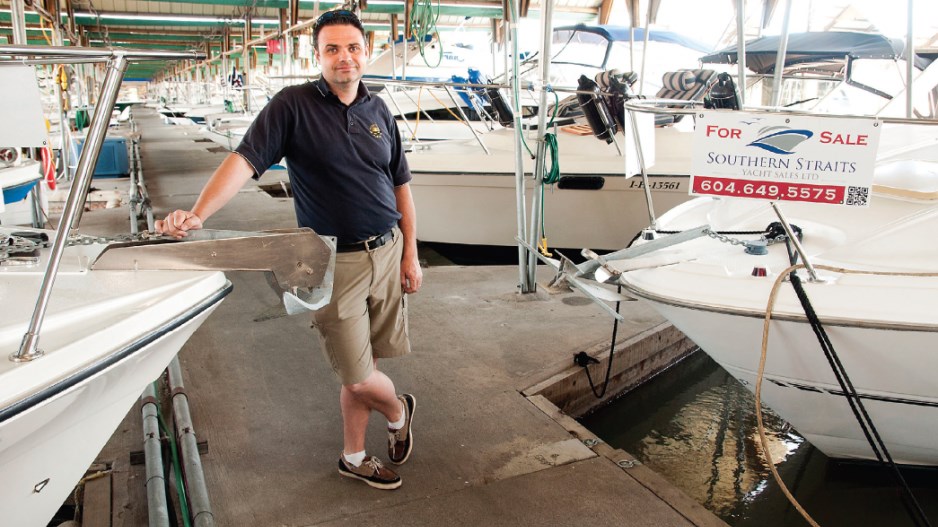Although baby boomers are aging, they haven’t lost their love of boating.
According to Mike Short, first vice-president of the Boating BC Association, baby boomers continue to be the largest demographic involved in recreational boating, an industry with 4,400 companies Canada-wide and 40,000 employees.
A decade or two ago, the typical boater was in his 40s and white. Now, that same boater is older and is being joined on the water by a growing number of Asian-Canadians, said Short, who also manages the Vancouver Marina in Richmond.
Their budding interest in maritime adventures has become so significant that Boating BC, which serves as the voice for the recreational marine industry, recently launched a Chinese-language website. It’s the first time the organization has delivered information about recreational boating in a language other than English, but it probably won’t be the last.
“One language at a time,” Short said with a laugh.
Much of the attraction to boating is for fishing, but for many Metro residents, the freedom of the ocean is also a lure. “It’s an escape from the busyness of Vancouver life,” Short added.
Another trend he’s noticed is a demand for larger and more expensive boats – 30 feet and longer – that are capable of carrying more people and voyaging for more than a couple of days.
But that doesn’t mean boating is only for the wealthy.
“There is a stigma about boating and how much it costs. Of course you can spend as much as you want [on a boat] ... but you can also be on the water for next to nothing,” Short said. “There’s a boat for everybody and all budgets.”
There are also easy rentals and charters for those interested in only occasional outings. While owners of motorized boats require a pleasure craft operator card (PCOC), those who rent do not.
Last year, Transport Canada issued roughly 37,000 PCOCs in British Columbia, down about 10,000 from 2012.
Roughly one in three Canadians participate in some form of recreational boating, and they own more than four million boats, according to a study conducted in 2012 for the National Marine Manufacturers Association. It estimated that the number of boats owned in B.C. is about 610,000.
The recreational boating industry, which includes manufacturing, sales, rentals, repairs and marinas, has annual revenues of $4.4 billion Canada-wide, with $856 million of that in B.C., the study found. But the industry also has a significant economic ripple effect, notably on fishing, outfitters and tourism. In comparing attitudes and behaviours of boaters to non-boaters, the study concluded that the former are more likely to have access to a cottage; to fish, camp, travel and swim; to read outdoor, science and auto magazines; to belong to nature, sports and community service clubs; to have an interest in undiscovered places; and to participate in fitness programs.
Although the boating business – and exports to the U.S. in particular – took a hit during the latest economic slump, most of those involved are now optimistic about the future, the study found.
“There is a sense by those who have survived till now that they will continue to survive,” says the report, titled The Economic Impact of Recreational Boating in Canada. “Those organizations often cite their ability to adapt to changing times, find niche markets and emphasize customer service.”
One company that fits that description is Martin Brothers Funeral Services. Recognizing the enduring bond between many coastal residents and the sea, the owners purchased a 72-foot yacht last year and began offering funeral services on the water, including the scattering of cremated remains.
Valerie Martell, director of operations, said Martin Brothers is the first funeral home in B.C. to provide funeral services aboard its own yacht, called the Pacific Ceremony.
A few such services are conducted each month during the summer, Martell said, but for her the most memorable one was for a young Chinese man who had fallen in love with Vancouver from afar. Neither he nor his family had ever visited Canada, but after his untimely death, his parents brought his ashes to Vancouver in May and gave their son his final resting place off the B.C. coast.




